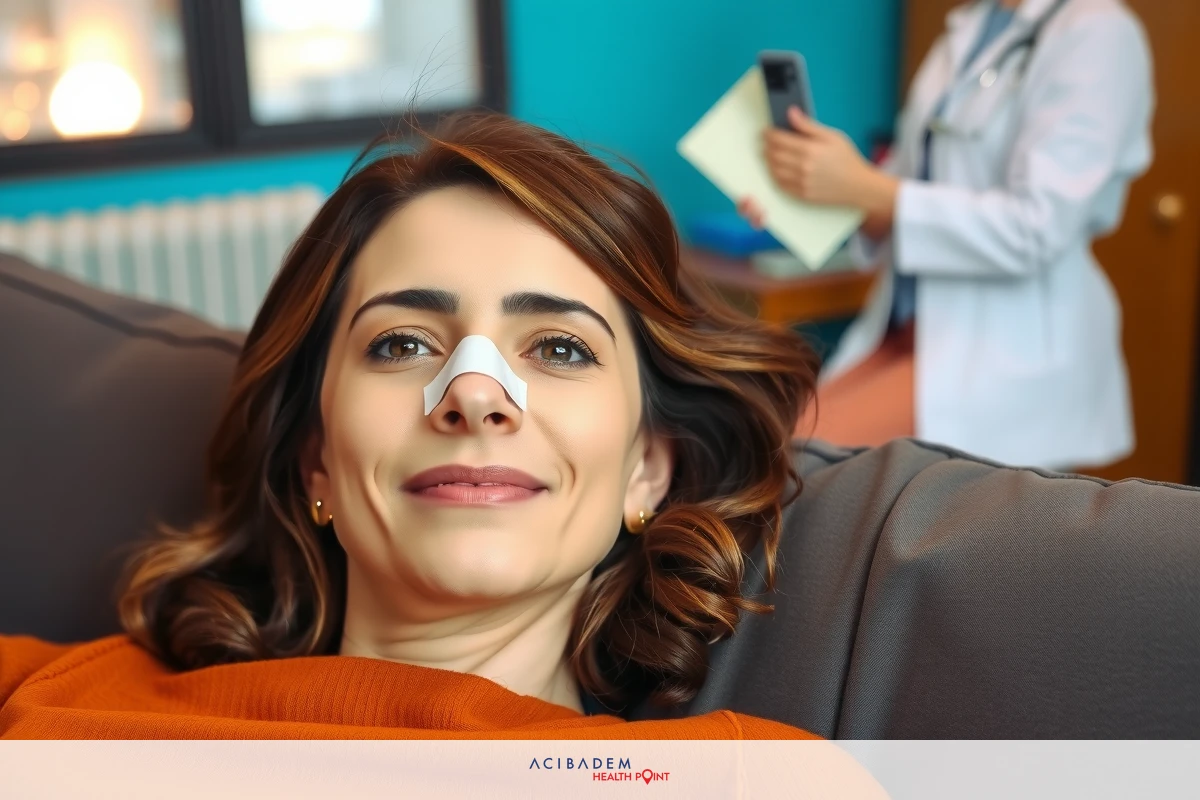How Long After a Revision Rhinoplasty Can You Get Revision?
How Long After a Revision Rhinoplasty Can You Get Revision? Ever wondered about the interval between one revision rhinoplasty and the next? The timing isn’t arbitrary. It’s dependent on factors that are as unique as each patient.
Considerations of anatomy, healing capacity, and even insurance come into play. Recovery from a previous operation is paramount before contemplating another surgery – this can take up to a year or longer depending on individual health conditions.
The decision for additional revisions is not taken lightly by medical professionals nor should it be by patients. Consultation with an experienced surgeon and understanding your personal recovery timeline are crucial steps in this journey.
Recovery Time After Revision Rhinoplasty
Recovery time after a revision rhinoplasty, just like any other surgical procedure, is a process. It’s important to understand that healing isn’t linear nor uniform across patients – it ebbs and flows. One must take into account the individual’s overall health status, their body’s rate of healing, as well as the extent of surgery done during the revision rhinoplasty.
Revision rhinoplasty often poses more challenges than primary surgeries due to scar tissue from previous procedures. This can prolong the recovery period and could possibly extend it beyond normal timelines. Yet another factor to consider is the patient’s mental readiness for an extended recovery phase which may include fluctuating levels of discomfort or swelling.
The first few weeks post-surgery are usually marked by visible bruising and swelling around the nose area; these symptoms gradually subside with time but complete resolution could take up to one year or longer in some cases. Many surgeons advise waiting at least a year before considering second revisions since optimal results might not be evident until then due to gradual changes that occur as part of natural healing processes.
It’s also worth noting that multiple factors influence this timing such as lifestyle habits (smoking inhibits wound healing), nutritional status (adequate protein intake aids in repair), adherence to post-operative care instructions among others. Therefore, patience becomes key during this period – rushing into decisions about further revisions without allowing ample time for recovery might lead to unnecessary complications or dissatisfaction with results.
A crucial aspect here is open communication with your surgeon throughout your recovery journey – they would provide guidance on expected milestones in your healing process based on their experience and observations from follow-up appointments. Regular consultations offer opportunities for addressing concerns promptly thereby reducing anxiety associated with unexpected outcomes while ensuring you’re on track towards achieving desired aesthetic goals.
There’s no one-size-fits-all answer when it comes down to determining an exact timeline for getting a second revision rhinoplasty following your previous one. It is an intricate balance between allowing enough time for complete healing from the first surgery, evaluating results objectively and considering readiness – both physical and mental – for undergoing another surgical procedure. This journey requires patience, resilience, and most importantly, guidance from your trusted surgeon to navigate it effectively.
Factors to Consider Before Getting Another Revision
As you navigate the journey of revision rhinoplasty, it is crucial to ponder a few key factors before deciding on a

second surgery. The decision weighs heavily not only on physical readiness but also psychological readiness and overall quality of life. It’s not just about timing, recovery, or healing; it involves a comprehensive look at your unique situation.
- Patient Health: This includes both physical and mental health. A patient must be in good general health for any form of surgery.
- Healing Progress: Is your body healing well from the previous surgery? Has enough time passed for full recovery?
- Surgical Expectations: Are they realistic? Can further revisions meet these expectations?
- Surgeon Expertise: The skill level and experience of your surgeon can significantly impact the outcome.
- Financial Implications: Each procedure comes with associated costs that need careful consideration.
- Psychological Readiness: Mental preparedness plays an essential role in handling post-surgery recovery stages.
- Lifestyle Changes Needed for Healing Assistance : Certain habits like smoking might delay healing while good nutrition could aid it.
- Insurance Coverage Consultation : Understanding what aspects are covered by insurance is important before proceeding with another operation.
9: Post-operative Care Adherence : Patient compliance to follow-up schedules and care instructions have direct implications on surgical outcomes and decisions regarding further revisions.
Each factor listed here holds importance when considering whether or not to proceed with another revision rhinoplasty procedure after a prior one has been done – none should be dismissed lightly as they all play integral roles in ensuring successful results post-procedure.
Frequently Asked Questions
Q: How long should I wait before considering a second revision rhinoplasty? A: The waiting period varies greatly among individuals. It’s crucial to allow your body ample time to heal completely from the previous procedure, which could take up to a year or longer in some cases.
Q: What key factors should I consider before deciding on another revision surgery? A: Several elements come into play – your overall health status, progress of healing from the last surgery, surgical expectations and financial implications are just a few. A detailed discussion with your surgeon is advised for making an informed decision.
Q: Will my insurance cover the costs of a second revision rhinoplasty? A: Coverage depends on your specific insurance policy and whether the procedure is deemed cosmetic or reconstructive. Pre-approval consultations with insurers can provide clarity regarding coverage details thus helping avoid unexpected expenses later on.
Q: Is it common for patients to undergo multiple revisions after their initial rhinoplasty procedure? A: While some people may require more than one revision due to various reasons such as inadequate functional correction during prior operations or dissatisfaction with aesthetic outcomes – it’s not essentially commonplace. Each case is unique hence consultation with experienced surgeons becomes essential in understanding individual needs better.








